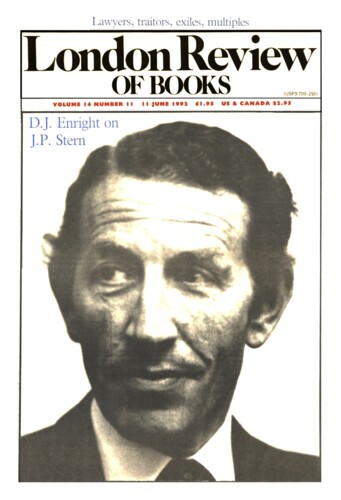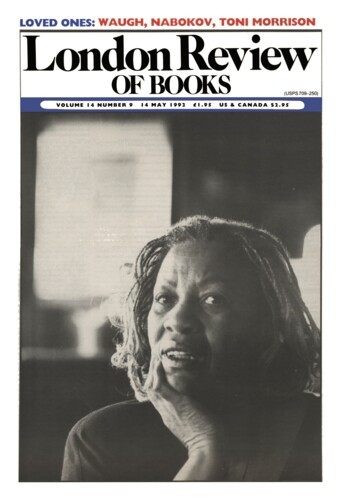Guts Benedict
Adam Bradbury, 11 June 1992
Somewhere on the road between Twin Peaks and Faulkner country you might come across Pinckney Benedict hacking out a prickly little clearing for himself in the shadow of some of American fiction’s more established, and more pronounceable, names – Pynchon, Steinbeck and Sam Shepard among them. Pinckney Benedict’s world is a small-town one, real backwoods stuff, an angle which his publishers are not over-anxious to play down. He lives, apparently, on the family farm. The cover picture has him in smart check shirt and braces, no doubt chewing a slug of baccy. Like Pynchon’s and Nelson Algren’s, his writing celebrates tips, junkyards, diners, small-town sheriffs’ offices. ‘Small’ is an understatement. These are virtually ghost towns, with less than their fair share of socially well-adjusted individuals – haunted by small minds and by characters who are, to adapt a phrase, a prong short of a pitchfork. And whereas Pynchon and Algren, and more recently William Vollman, tend to have sought out big city trash, Benedict is more at home among the rocks and trees with God’s own good dirt. His one fully-committed excursion from the bush, ‘At the Alhambra’, describing a vacation in Nicaragua, is his least successful. Even then, the ill-tempered Bowlesian Americans-on-holiday couple spend most of their time observing un-Americans from their hotel balcony and trying to remember where it was the name ‘Alhambra’ came from.’


